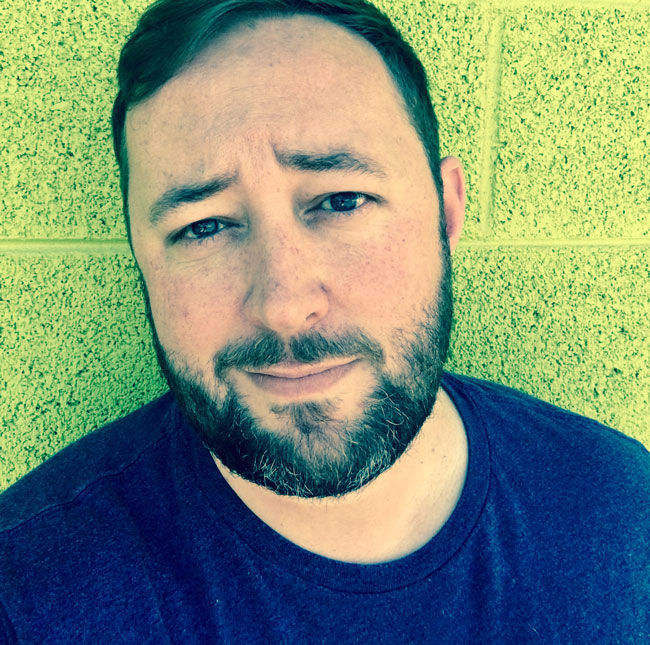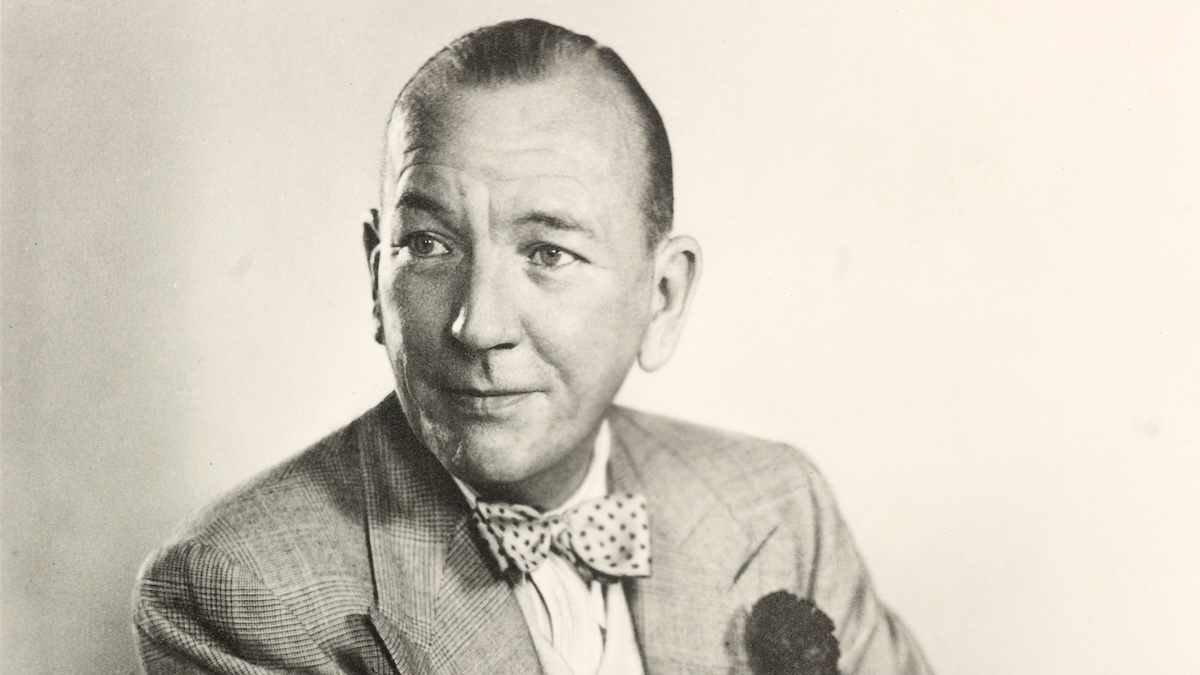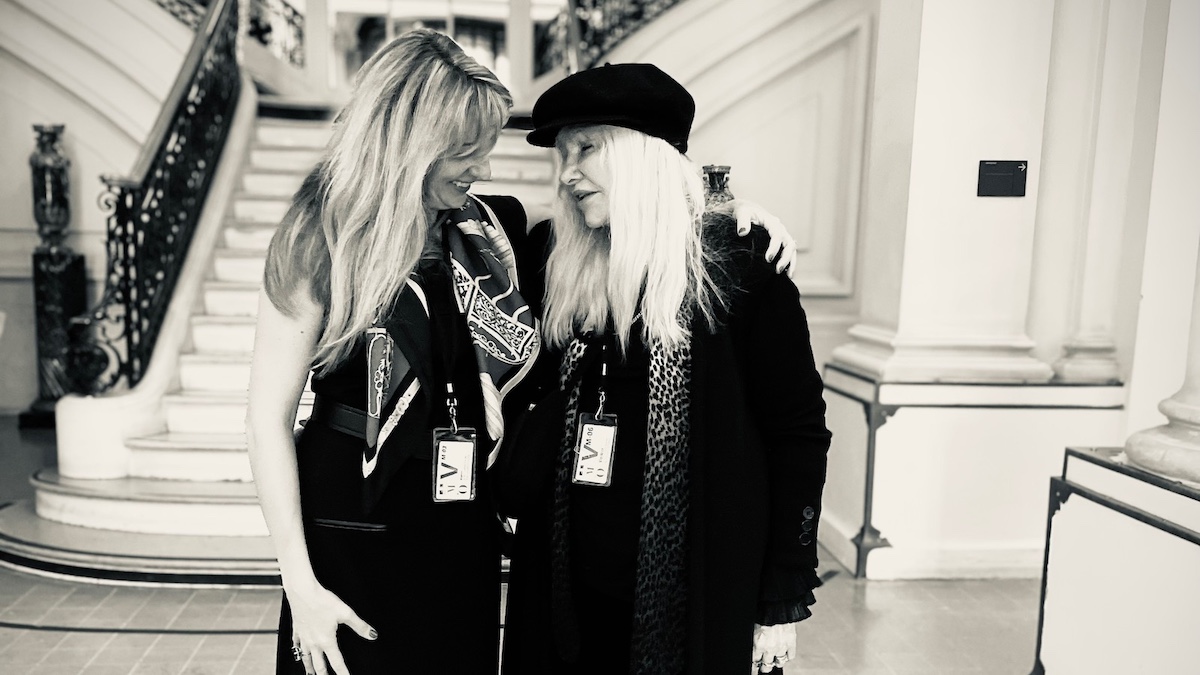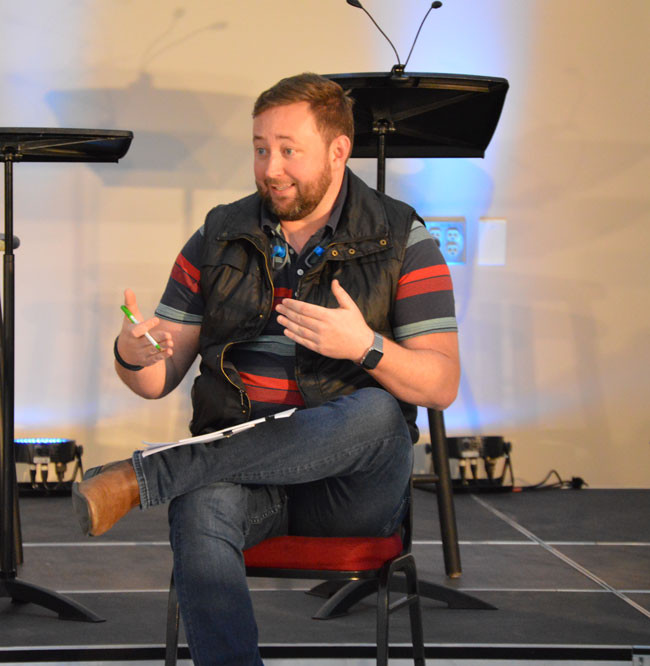
At the Dramatists Guild Fund, we strive to aid and nurture writers for the theatre through educational and grant-making programs. One of the many ways we support writers across the nation is through our Traveling Masters Program, which sends master dramatists into communities all over the US to lead educational workshops and public events. This past February, I had the pleasure of bringing playwright Steve Yockey to work with the talented student playwrights of the Kennedy Center American College Theater Festival Region VIII in Mesa, Arizona. Below, I sat down with Steve to chat about his experience – and, some hilarious memories – of the trip.
Tessa Raden: What was your favorite part of the Traveling Masters experience?
Steve Yockey: I should say mentoring the playwrights, right? That’s fair. It was technically the best overall part of the trip. But the single most surreal, memorable moment happened at an Outback Steakhouse in Mesa, AZ. You and I were trying to talk over dinner and the guy behind us sneezed easily 75 times in 60 minutes. It was stunning. At first we were worried about his health. Do you remember this? But after 30 minutes, that feeling withered into unadulterated annoyance and we were trapped in a little absurdist play. With good bread.
Tessa: We traveled to Arizona to work with college playwrights. How much playwriting were you doing as a college student?
Steve: I mostly wrote short work in college because I was still figuring out “how” to write. Eventually you learn to just do it, but in the beginning there’s this idea of, “Am I allowed to do this? Am I doing this right?” Actually, one of the reasons I was excited to participate through the Traveling Masters program is because I had a ten-minute play in ACTF when I was an undergrad. My very first little piece with a mattress, gay romance, a dead guy, suicide, hyper-elevated language, you can’t imagine. The regional was a fantastic experience. Even though the respondents completed shredded my play. Honestly, I’m not sure they were wrong.
But a big part of working in a creative field is learning how to hear and process feedback. It’s coming whether you’re ready or not. And it doesn’t always come to you the way you hope or the way that best serves your play. So it’s important to start grasping early on how to receive and parse criticism.
Tessa: You give such great constructive feedback; tell me about your experience working as an educator.
Steve: Solid, invested teachers are the main reason I have a career now. Hands down. Elizabeth Diggs and Alice Tuan deserve particular thanks. Or the lion’s share of the blame. So passing that enthusiasm along is a pleasure. And I just get very amped up about figuring out where a playwright wants to land with their story and helping clear the path to that destination.
Tessa: What did you take away from the Traveling Masters experience?
Steve: It was a stark reminder of just how frenetic and terrifying fledgling playwriting can be and a reminder of the need to reach our hands out to new writers. Once you’ve sort of made it through to the other side of the big scary forest that is “emerging” in the American Theatre, you have to go back and stop other writers coming behind you from dying of exposure, lost in the trees. Even in environments of extreme scarcity (like theatre), we all rise together.
Tessa: What were your impressions of the student playwrights we met that week at KCACTF Region VIII?
Steve: Rock stars. I think some of them don’t realize it yet, but they were thoughtful, ambitious, and creative rock stars.
Tessa: What were you most surprised by that week?
Steve: That one’s easy. The quality of the plays.
Steve Yockey in action during the Traveling Masters program.
Tessa: If you had one piece of advice to the students you met in Mesa, what would you want them to take away from that week?
Steve: I’m cribbing a bit from Marsha Norman here (and she’s just a huge fan of paraphrasing), but I’d say this: You’re the only person in the world with your particular lens. So write what you want to write and be the most “you” possible. That specificity is what will engage people. Your unique story is what has the potential to fascinate.
Tessa: Why do you think the Traveling Masters Program is so important?
Steve: Pretty sure I didn’t meet my first working playwright until I was well into my twenties. I had so many questions and sometimes felt incredibly isolated trying to figure out what it means to be a writer in theatre. The Traveling Masters Program is vital because it imparts wisdom and experience from one group of writers to the next. It brings writers together. And the more working writers you meet, the more you realize everyone’s path is different. That accomplishment and achievement look different on every writer. Which means they will probably look different for you, too. And that realization makes it easier to push towards your own version of success in the field.
Tessa: Would you be excited to participate in the Traveling Masters Program again?
Steve: Absolutely. When you laid out the Dramatist Guild Fund’s working “50 State Plan” idea and I called dibs on Maine, that wasn’t a joke. I’m dead serious. I mean I’ll go wherever you guys like. But if anyone from the Pine Tree State is reading this and slightly intrigued, know that we’re into it.
Tessa: What upcoming projects are you most excited about?
Steve: I just turned in a piece for the Kennedy Center’s JFK Centennial called To Tokyo & The Moon (a commission I received during our trip to Mesa). It’s full of pathos, theatricality, and dark whimsy. That has me feeling pretty good at the moment. And I’m working on a new short play cycle called Reykjavík that’s proving to be a lot like wrestling a bear. But hopefully I’ve got the stamina to wrangle it into submission.

Noël Coward’s Travels

Kate Chopin in New Orleans: Mother-Daughter Author Duo Collaborate on Historical Book


